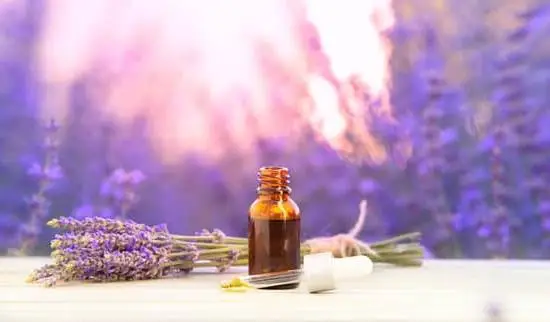Aromatherapy, the use of essential oils for therapeutic purposes, has been gaining popularity as a natural remedy for various health conditions. But does aromatherapy work with bad breath? In this article, we will explore the concept of aromatherapy and its potential benefits for treating bad breath. From understanding the causes of bad breath to exploring specific essential oils and aromatherapy techniques, we will delve into the effectiveness of aromatherapy as a treatment for bad breath.
Bad breath, also known as halitosis, can be caused by various factors such as poor oral hygiene, dental issues, dry mouth, and even certain medical conditions. Despite common misconceptions about the causes of bad breath, aromatherapy offers a natural and holistic approach to addressing this concern. By understanding how aromatherapy works and which essential oils are effective in combating bad breath, individuals may find relief from this common oral health issue without relying on artificial chemicals or medications.
Aromatherapy involves the use of aromatic plant extracts to promote physical and psychological well-being. The practice utilizes essential oils obtained from plants through methods like distillation or cold-pressing. These essential oils contain potent compounds that exhibit antibacterial, antifungal, and anti-inflammatory properties. When used appropriately, these essential oils have shown promise in combatting the bacteria that contribute to bad breath while promoting overall oral health.
Understanding Bad Breath
Bad breath, also known as halitosis, is a common oral health issue that can be caused by a variety of factors. It can be embarrassing and affect one’s self-confidence, but understanding the causes and misconceptions about bad breath can help in finding the right treatment, including aromatherapy.
Causes of Bad Breath:
– Poor Oral Hygiene: Not brushing and flossing regularly allows bacteria to build up in the mouth, causing bad breath.
– Dry Mouth: Saliva helps to cleanse the mouth, so a dry mouth can lead to an increase in odor-causing bacteria.
– Food and Drinks: Certain foods and drinks, such as garlic, onions, coffee, and alcohol, can contribute to bad breath.
– Medical Conditions: Some medical conditions such as respiratory infections, diabetes, and acid reflux can also cause bad breath.
– Tobacco Use: Smoking or using other tobacco products can lead to bad breath.
Common Misconceptions about Bad Breath:
1. Only Brushing Teeth is Enough: While brushing teeth is important for oral hygiene, it may not be enough to completely eliminate bad breath if other factors such as diet or medical conditions are at play.
2. All Bad Breath Comes from the Stomach: While some cases of bad breath do originate from the stomach (such as with acid reflux), most cases of bad breath are caused by oral hygiene issues or diet.
3. Breath Mints Are a Permanent Solution: While breath mints may temporarily mask bad breath, they do not address the underlying causes and are only a short-term solution.
Understanding these causes and misconceptions is essential when considering different treatments for bad breath. This includes exploring alternative remedies such as aromatherapy as a natural approach to addressing this common issue. Aromatherapy has gained attention for its potential benefits in treating various health concerns, including bad breath. However, further research is needed to fully understand how effective it might be specifically for tackling halitosis”.
Aromatherapy 101
Aromatherapy is a holistic healing treatment that uses natural plant extracts to promote health and well-being. It has been used for centuries as a natural remedy for various ailments, including bad breath. Aromatherapy works by stimulating the smell receptors in the nose, which then send messages through the nervous system to the part of the brain that controls emotions and memory. This can have a subtle but positive effect on our physical and emotional health.
When it comes to treating bad breath, aromatherapy can be particularly effective because many essential oils have antibacterial properties. These oils can help kill off odor-causing bacteria in the mouth, while also leaving a pleasant scent behind. Additionally, certain essential oils have anti-inflammatory properties that can help reduce swelling and irritation in the gums and throat, which may contribute to bad breath.
One of the key ways that aromatherapy works with bad breath is through inhalation. By inhaling the aroma of certain essential oils, it’s possible to stimulate saliva production, which can help wash away food particles and bacteria in the mouth. Some essential oils also contain compounds that can neutralize odors and freshen breath.
| Aromatherapy Facts | How It Works |
|---|---|
| Aromatherapy is a holistic healing treatment using natural plant extracts. | Stimulates smell receptors in the nose and sends messages to the brain. |
| Many essential oils have antibacterial properties. | Kills off odor-causing bacteria in the mouth. |
| Essential oils stimulate saliva production. | Helps wash away food particles and neutralize odors in the mouth. |
Essential Oils for Bad Breath
When it comes to treating bad breath, essential oils can be a natural and effective solution. Many essential oils have antimicrobial and anti-inflammatory properties that can help combat the bacteria and inflammation that cause bad breath. Additionally, the pleasant aroma of essential oils can help mask odors and leave your mouth feeling fresh and clean.
Peppermint Oil
One of the most popular essential oils for treating bad breath is peppermint oil. It has a refreshing, minty scent that can leave your mouth feeling clean and invigorated. Peppermint oil also has antimicrobial properties that can help kill off bacteria in the mouth that contribute to bad breath. You can use peppermint oil by adding a drop to your toothpaste or mixing it with water for a homemade mouthwash.
Tea Tree Oil
Tea tree oil is another essential oil that has been found to be effective in combating bad breath. It has strong antibacterial properties that can help eliminate oral bacteria and reduce the likelihood of developing bad breath. A few drops of tea tree oil mixed with water can be used as a natural mouthwash to freshen breath and kill off odor-causing bacteria.
Clove Oil
Clove oil is well-known for its numbing effects, making it an excellent choice for targeting dental pain and freshening breath. It also possesses antiseptic properties, which make it effective at killing harmful bacteria in the mouth. Adding a drop of clove oil to your toothpaste or using it as part of an oil pulling routine could help combat bad breath.
When it comes to incorporating essential oils into your oral care routine, it’s important to use them safely and in moderation. Always dilute essential oils with a carrier oil before applying them topically or using them for mouth rinses, as they are highly concentrated and potent. With proper usage, essential oils can definitely provide a natural way to combat bad breath without relying on artificial ingredients or chemicals commonly found in commercial oral care products.
By incorporating these essential oils into your daily oral hygiene routine, you may find relief from ongoing issues with bad breath while also enjoying the added benefits of their aromatherapy properties. As always, consult with a healthcare professional before starting any new treatment regimen or if you have any underlying medical conditions.
Aromatherapy Techniques
When it comes to using aromatherapy for bad breath, there are several techniques that can be employed to achieve the desired results. These techniques involve the use of essential oils in various ways, such as inhalation and topical application. Below are some effective aromatherapy techniques that can help combat bad breath:
1. Inhalation: One of the most common and effective ways to use aromatherapy for bad breath is through inhalation. This can be done by adding a few drops of essential oil to a diffuser or by simply inhaling the aroma directly from the bottle. Inhaling essential oils not only helps freshen the breath but also provides a sense of calm and relaxation.
2. Topical Application: Another way to use aromatherapy for bad breath is through topical application. This involves diluting essential oils with a carrier oil, such as almond or coconut oil, and applying it directly to the skin in areas near the mouth, such as along the jawline or on the neck. Some essential oils have antibacterial properties that can help fight off odor-causing bacteria in the mouth.
3. Oil Pulling: Oil pulling is an ancient Ayurvedic practice that involves swishing oil around in the mouth for several minutes before spitting it out. While traditionally performed with coconut or sesame oil, some people choose to use essential oils for added benefits. The antibacterial properties of certain essential oils can help reduce plaque buildup and combat bad breath.
It’s important to note that when using aromatherapy for bad breath, it’s crucial to choose high-quality, therapeutic-grade essential oils and follow proper dilution guidelines to avoid any potential irritation or adverse reactions.
Remember, incorporating these aromatherapy techniques into your daily oral hygiene routine may complement traditional methods of maintaining fresh breath and overall oral health.
Research and Studies
Aromatherapy, a form of alternative medicine that uses essential oils to improve a person’s physical or psychological well-being, has been gaining popularity in recent years. But does aromatherapy work with bad breath? Research and studies have shown promising results in using aromatherapy to address bad breath, also known as halitosis.
Several studies have indicated that certain essential oils have antibacterial properties that can help combat the bacteria responsible for causing bad breath. For example, tea tree oil, peppermint oil, and eucalyptus oil have been found to be effective in reducing the bacteria in the mouth that leads to unpleasant odors. These essential oils can be used in various ways such as gargling with a few drops diluted in water or incorporating them into oral hygiene products like toothpaste and mouthwash.
In addition, a study published in the Journal of International Society of Preventive & Community Dentistry found that inhaling essential oils can also impact oral health by reducing the number of bacteria present in the mouth. This demonstrates the potential of aromatherapy as an effective and natural method for addressing bad breath.
While more research is needed to fully understand the mechanisms and specific benefits of aromatherapy for bad breath, these studies provide compelling evidence for its use as a complementary approach to oral hygiene.
| Essential Oil | Effectiveness in Treating Bad Breath |
|---|---|
| Tea Tree Oil | Antibacterial properties reduce bacteria in the mouth |
| Peppermint Oil | Effective in reducing unpleasant odors caused by bacteria |
| Eucalyptus Oil | Demonstrated effectiveness in combating oral bacteria |
Safety and Considerations
When using aromatherapy for bad breath, it is important to consider safety precautions and potential risks associated with this natural remedy. While aromatherapy can offer potential benefits for treating bad breath, it is essential to use essential oils and aromatherapy techniques in a safe and responsible manner.
Skin Sensitivity
It is crucial to consider skin sensitivity when using essential oils for aromatherapy. Some individuals may have allergic reactions or skin irritations when applying undiluted essential oils directly to the skin. It is recommended to perform a patch test before using any essential oil topically, especially if you have sensitive skin or are prone to allergies.
Dilution
Essential oils are highly concentrated and should be diluted with a carrier oil before being applied to the skin or used for inhalation. Using undiluted essential oils can cause irritation, sensitization, or adverse reactions. It is important to follow recommended dilution ratios and guidelines provided by reputable sources when preparing aromatherapy blends for bad breath.
Pregnancy and Medical Conditions
Individuals who are pregnant, nursing, or have underlying medical conditions should exercise caution when using aromatherapy. Some essential oils may not be safe for use during pregnancy or could interact with certain medications. It is advisable to consult with a healthcare professional before incorporating aromatherapy into your treatment plan if you fall into these categories.
Incorporating these safety precautions and considerations can help ensure the safe and effective use of aromatherapy for treating bad breath. By being mindful of potential risks and taking necessary measures to mitigate them, individuals can experience the potential benefits of aromatherapy without compromising their overall well-being.
Tips for Incorporating Aromatherapy
Bad breath, also known as halitosis, can be an embarrassing and uncomfortable condition that many people struggle with. While there are various commercial products available to address bad breath, some individuals may prefer a more natural approach. One potential solution that has been gaining attention is aromatherapy. So, does aromatherapy work with bad breath? Let’s delve into some practical tips and advice for incorporating aromatherapy into a daily oral hygiene routine to address this common issue.
One effective way to incorporate aromatherapy into your daily oral hygiene routine is by using essential oils. Peppermint, tea tree, and eucalyptus essential oils are commonly used for their antibacterial properties and refreshing scents. You can add a drop or two of these essential oils to your toothpaste or mouthwash before brushing or gargling to help combat bad breath. Additionally, you can diffuse these oils in the air while practicing breathing exercises as part of your daily routine.
Another simple method for utilizing aromatherapy for bad breath is by creating homemade mouthwash using essential oils. Mixing a few drops of peppermint or tea tree oil with water can create a refreshing and bacteria-fighting mouth rinse that can be used throughout the day as needed. This natural alternative provides the benefits of aromatherapy while promoting good oral hygiene.
Incorporating aromatherapy into your dental care routine offers numerous potential benefits beyond just addressing bad breath. It can also promote relaxation and reduce stress, which are known triggers for halitosis. By embracing these practical tips for incorporating aromatherapy into your daily oral hygiene routine, you may not only improve your breath but also enhance your overall well-being through the therapeutic use of essential oils.
Conclusion
In conclusion, aromatherapy has shown potential in treating bad breath, with specific essential oils such as peppermint, tea tree, and eucalyptus oil being touted for their antibacterial properties that can help combat the odors associated with bad breath. Inhalation and topical application are two effective ways to harness the benefits of aromatherapy for bad breath, making it a convenient and accessible natural remedy.
While scientific evidence supporting the use of aromatherapy for bad breath is still limited, there are promising studies that suggest its effectiveness. It is important to note that safety precautions and considerations should be taken when using essential oils for aromatherapy. Diluting them properly and consulting with a healthcare professional are important steps to ensure safe use.
Ultimately, incorporating aromatherapy into a daily oral hygiene routine can be a valuable addition in addressing bad breath. With its potential benefits and natural approach, individuals suffering from chronic bad breath may find relief through the use of aromatherapy. Further exploration and research in this field can potentially provide more insights into the effectiveness of aromatherapy for treating bad breath.
So, does aromatherapy works with bad breadth? The answer may lie in continued exploration and understanding of this natural remedy’s potential.
Frequently Asked Questions
Which Essential Oil Kills Bad Breath?
Peppermint essential oil is known for its antibacterial properties, which can help kill the bacteria that causes bad breath. It also has a refreshing scent that can mask unpleasant odors, making it an effective natural remedy for bad breath.
What Is the Best Thing for Really Bad Breath?
The best thing for really bad breath is to practice good oral hygiene, including brushing your teeth and tongue, flossing, and using mouthwash regularly. Drinking plenty of water and avoiding foods that contribute to bad breath can also help improve the situation.
How Do You Stop Your Breath From Smelling Bad?
To stop your breath from smelling bad, it’s important to maintain a good oral hygiene routine by brushing and flossing regularly. Using mouthwash or chewing sugar-free gum can also help freshen your breath temporarily. Additionally, staying hydrated and avoiding strong-smelling foods like garlic and onions can contribute to better-smelling breath.

Are you looking for a natural way to improve your health and wellbeing?
If so, aromatherapy may be the answer for you.





